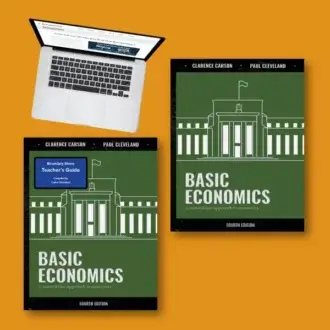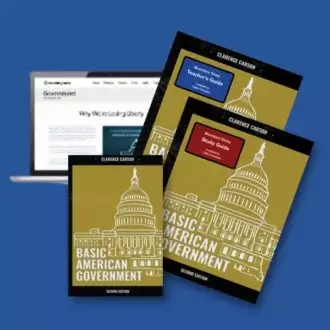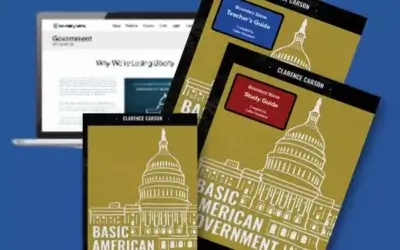This is an edited version of a portion of an article that was originally written by Clarence B. Carson and published as the opening to the introductory chapter in Volume 1 of his six-volume A Basic History of the United States. It has been edited by Paul A. Cleveland for the upcoming 2nd edition two-volume set of these books.
Many if not most people would nod in agreement with the old saying—“Experience is the best teacher.” However, the statement needs a deeper look to consider how universally true it really is. Benjamin Franklin may have been more precise when he said, “Experience keeps a dear [that is, costly or expensive] school. The fool will learn in no other.” In other words, as Franklin would have it, far from being the best or most desirable teacher, experience is a teacher whom the Wise will consult as rarely as possible.
Nevertheless, there is one sense in which experience may be considered the best teacher. Personal experience is often the most effective teacher. In other words, firsthand experiences are often more vivid and leave a longer-lasting impression. As some would say, “The burnt dog dreads the fire.” On the other hand, personal experience is hardly the recommended approach to learning much that we need to know. The dog may not survive his first contact with the fire. It is better not to learn about the dangers of a moving car by being run over by one. It would undoubtedly leave a strong impression, but that might be the last impression. Life is much too short for us to gain much of the knowledge we need by personal experience alone.
Thus, Franklin’s advice is the much wiser, broader, and deeper. It also follows that one of the reasons for studying history is to broaden our knowledge far beyond what we could acquire from personal experience. The study of history is a way to learn in a much less expensive school. We are able to buttress our limited experience with the experience of the entire human race throughout the ages. That is not to say that we ever achieve such an exalted goal, but seeking to do so in the costliest cases is one of the purposes underlying the study of history.
We ought to make one distinction here. It is possible to distinguish between formal and informal history. Formal history is what is found in history books or studied in the classroom, while informal history is the possession of every person who has any sort of developed memory. To put it another way, we can distinguish between history that has been recorded, organized, polished, and clearly stated on the one hand, and that which exists in the hodge-podge of private recollections each of us have. Thus, it is possible to distinguish between folk sayings, such as Franklin’s quote, and the conclusions that flow from formal historical studies. When people disregard what has been learned from the careful study of formal history, they are very likely to suffer the consequences of unwise choices that could have easily been avoided.







Well stated!